Presented by Cranbrook Center for Collections and Research in Collaboration with the University of Michigan “Art & Resistance” Fall 2023 Theme Semester
Hosts
Gregory Wittkopp, Director, Cranbrook Center for Collections and Research
Katri Ervamaa, Music Program Head, University of Michigan Residential College
Chamber Music in the Age of Resistance features chamber music written by composers whose artistic lives and body of repertoire constitute acts of resistance. Written at different ages and on different continents, their work connects social justice issues to their lived experience. The concert at Cranbrook draws inspiration from the life of Finnish American architect Eliel Saarinen (1873–1950), whose work in Finland resisted the yoke of Russian domination and helped pave the way for Finnish Independence in 1917.
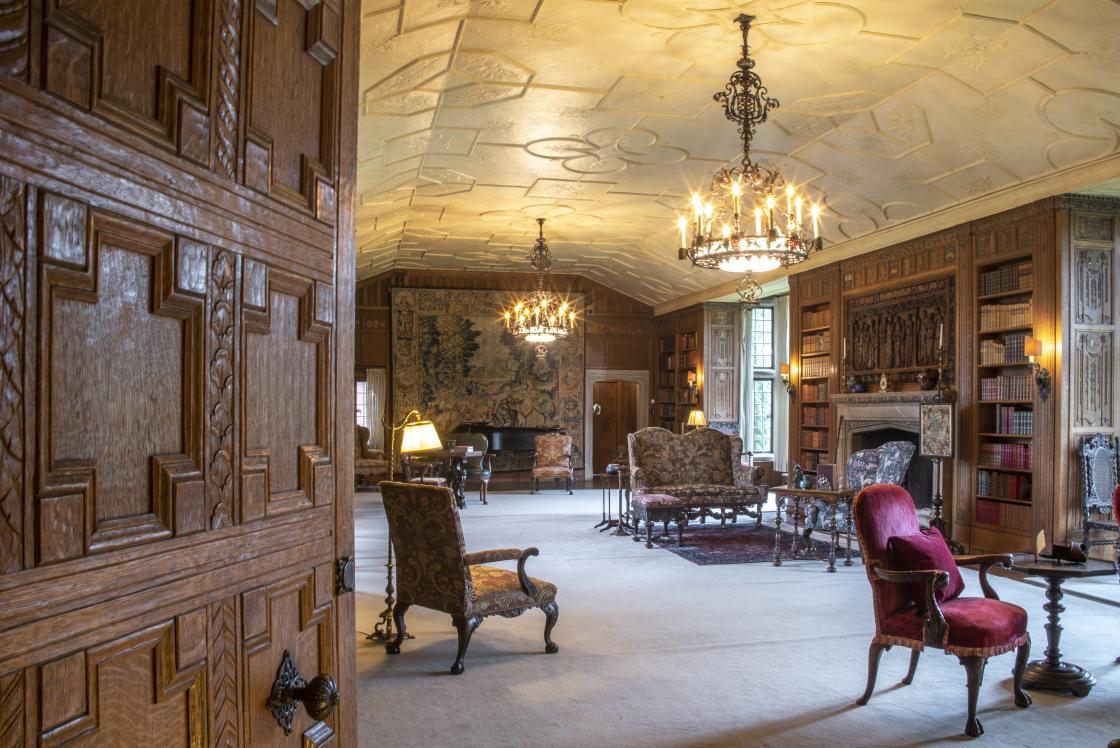
Featured Composers
Mel Bonis (French, 1858–1937)
Toivo Kuula (Finnish, 1883–1918)
Leevi Madetoja (Finnish, 1887–1947)
Daniel Bernard Roumain (Haitian American, born 1971)
Isang Yun (Korean, 1917–1995)
Featured Musicians
Katri Ervamaa (Cello)
Jennifer Goltz-Taylor (Voice)
Kyoko Kashiwagi (Violin)
Naki Sung Kripfgans (Piano)
Eva Stern (Viola)
Concert Program
Toivo Kuula, Songs (14 minutes)
Epilogi, Op.6, No.2, 1907
Suutelo, Op.8, No.1, 1908
Sinipiika, Op.23, No.1, 1912
Jääkukkia, Op.34, No.2, 1913
Isang Yun, Song: 고풍의상 (古風依裳: Stylish Dress of Antique Passion), 1948 (3 minutes)
Daniel Bernard Roumain, On the Edge of Night for Soprano and String Trio, 2014 (20 minutes)
Intermission with Complimentary Coffee and Tea
Leevi Madetoja, Works for Violin and Piano (9 minutes)
Menuetti (Minuet), Op.14, No.3, 1912
Suru (Elegy), Op.14, No.2, 1910
Ballad, Op.3, 1909
Mel Bonis, Piano Quartet in D Major, Op. 124, No. 2, 1927 (25 minutes)
Conversation with the Musicians
Tickets
$75 per person (includes a $25 tax-deductible donation to Cranbrook Center for Collections and Research)
Limited Seating / Advance Registration Required

ABOUT THE COMPOSERS
Composing music with a nationalistic core at a time of great political upheaval, Leevi Madetoja and Toivo Kuula were at the foreground of the first generation of significant Finnish-speaking composers, coming of age and making culturally important Finnish art music during the periods of Russification (1899-1905 and from 1908 until the Finnish Independence in 1917). Similarly merging his own compositional style with the music of his beleaguered country, Korean composer Isang Yun’s works explore aesthetic and philosophical issues relating to Asian traditional music, Chinese Taoism, and Western avant-garde compositional procedures. He was twice a political prisoner: first, in his youth, for his participation in the Korean Independence Movement, and later, after a significant career as a composer, due to alleged acts of espionage, when he was kidnapped by the South Korean secret service and taken to Seoul. In prison he was tortured, attempted suicide, forced to confess to espionage, threatened with death, and sentenced to life imprisonment.
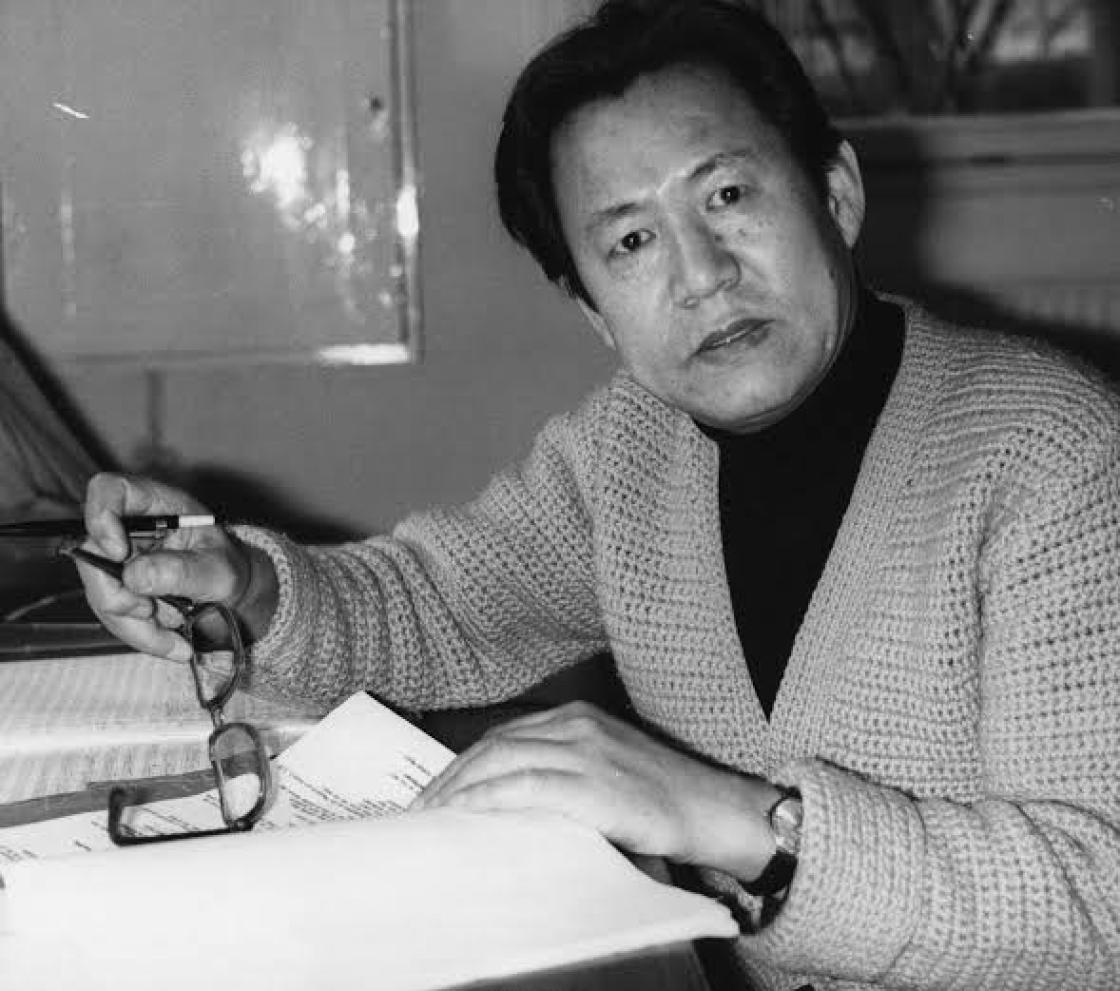
Daniel Bernard Roumain (DBR) is a contemporary Black, Haitian American composer who resists the Euro-centric, top-down structure of classical music’s past by developing ideas and composing in collaboration with artists, organizations, and communities. “About as omnivorous as a contemporary artist gets” (New York Times), DBR has worked with artists from J’Nai Bridges, Lady Gaga, and Philip Glass to Bill T. Jones, Marin Alsop, and Anna Deavere Smith. Among many other significant projects, DBR’s justice work includes a Carnegie Hall commission The Just and the Blind, the chamber opera We Shall Not Be Moved and the New Jersey Symphony Orchestra commission i am a white person who_____Black people. The program will include DBR’s On the Edge of Night, a chamber work for strings, piano, and voice best described as New Classical Soul.
The poetry of On the Edge of Night, a meditation on womanhood, relationships, and loss, is captured in music that is both provocative and propulsive; it would have resonated powerfully with the French composer Mélanie Bonis, whose professional artistic life as a middle-class Catholic woman composer in the late 19th and early 20th century Paris resisted the boundaries set by both society and her family. Her professional success and prolific creative output, written under the gender-obscuring name Mel Bonis, came at a great personal cost and was almost completely forgotten after the Great War. Performers of Bonis today enact a second layer of resistance by bringing her work again to light.
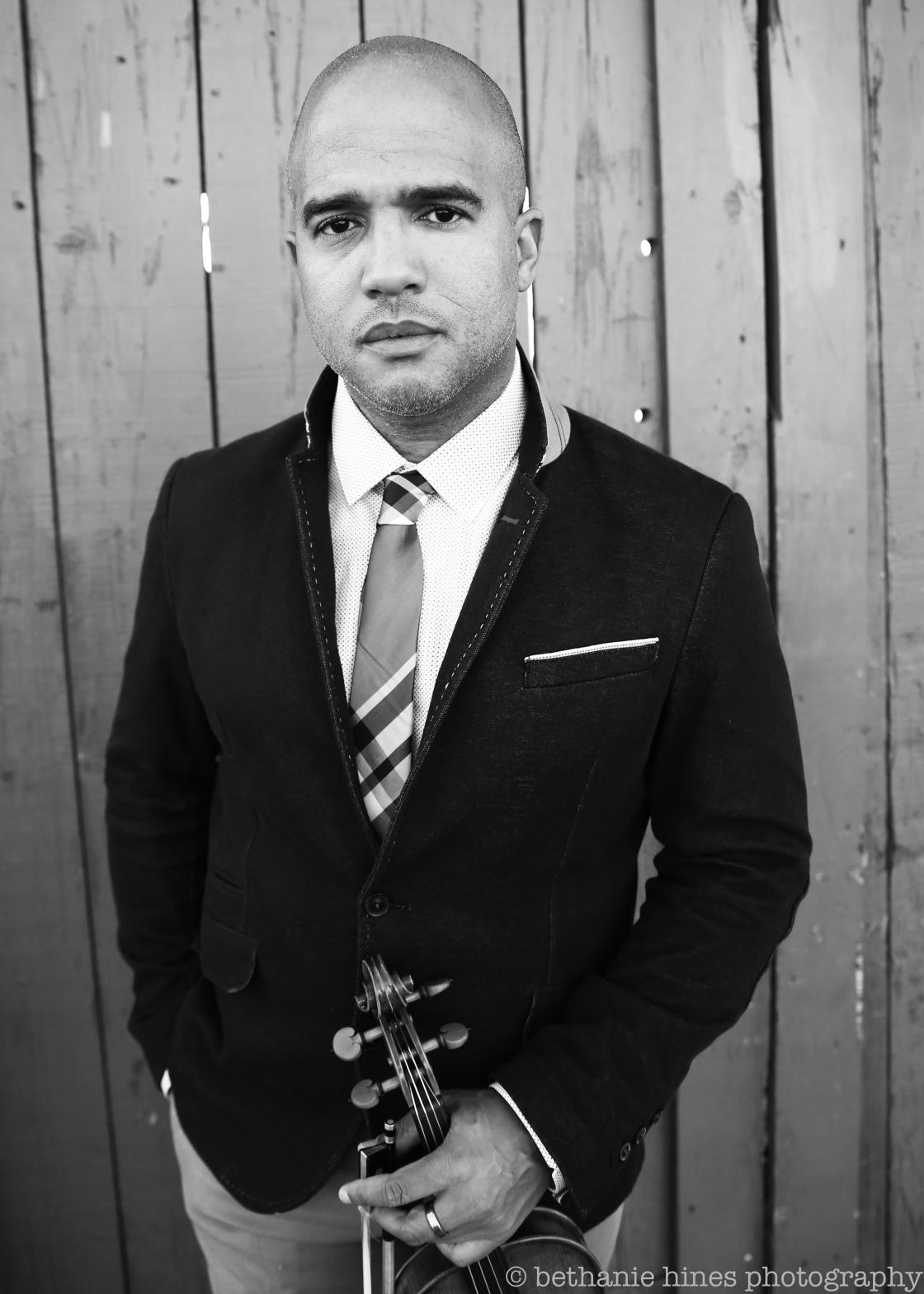
ABOUT THE MUSICIANS
Finnish-born cellist Katri Ervamaa, DMA, is a multifaceted performer of chamber music, new music, and creative improvisation. She has performed throughout North America, Europe, and Taiwan. Ervamaa is a member of the Muse Ensemble, the Brave New Works new music ensemble, the Järnefelt Piano Trio, and E3Q, and appears on Envoy Recordings, Block M Records, and AMP Records labels, as well as the documentary Mestiza Music broadcast on 60 PBS stations nationwide. She is the Head of the Music Program at the University of Michigan’s Residential College. Ervamaa’s non-profit work includes the Pentti Kaitera Charitable Fund at the Oulu University in Finland, and the Randazzo Dance Company based in Ann Arbor. You can find her online at www.katrimusic.com.
Soprano Jennifer Goltz-Taylor specializes in new chamber music and art song. Her virtuosity and interpretive sensitivity have inspired dozens of composers to write for her. She has performed in Europe and across the US as a founding member of the new music ensemble Brave New Works, with Milwaukee-based Present Music, and with Klangforum Wien, among others. She recorded the role of the god Pan in Kamran Ince’s opera Judgment of Midas for Naxos and can also be heard on Albany, Centaur, MSR Classics, AMP, and Blue Griffin Records. Her recording of Arnold Schoenberg's Pierrot lunaire and Brettl-lieder (MSR) with the Los Angeles-based ensemble Inauthentica was hailed by Gramophone as "captivating" and "brilliant… a voice full of subtle allure and sprightly energy." She fronted the popular Klezmer band Into the Freylakh in the early 2000s and now appears with Klezmephonic. In addition to degrees in Vocal Performance, Goltz-Taylor holds a Ph.D. in Music Theory from the University of Michigan and has published on narrative in film scores and the history of Sprechstimme. She teaches courses in voice and music within the humanities at the University of Michigan Residential College.
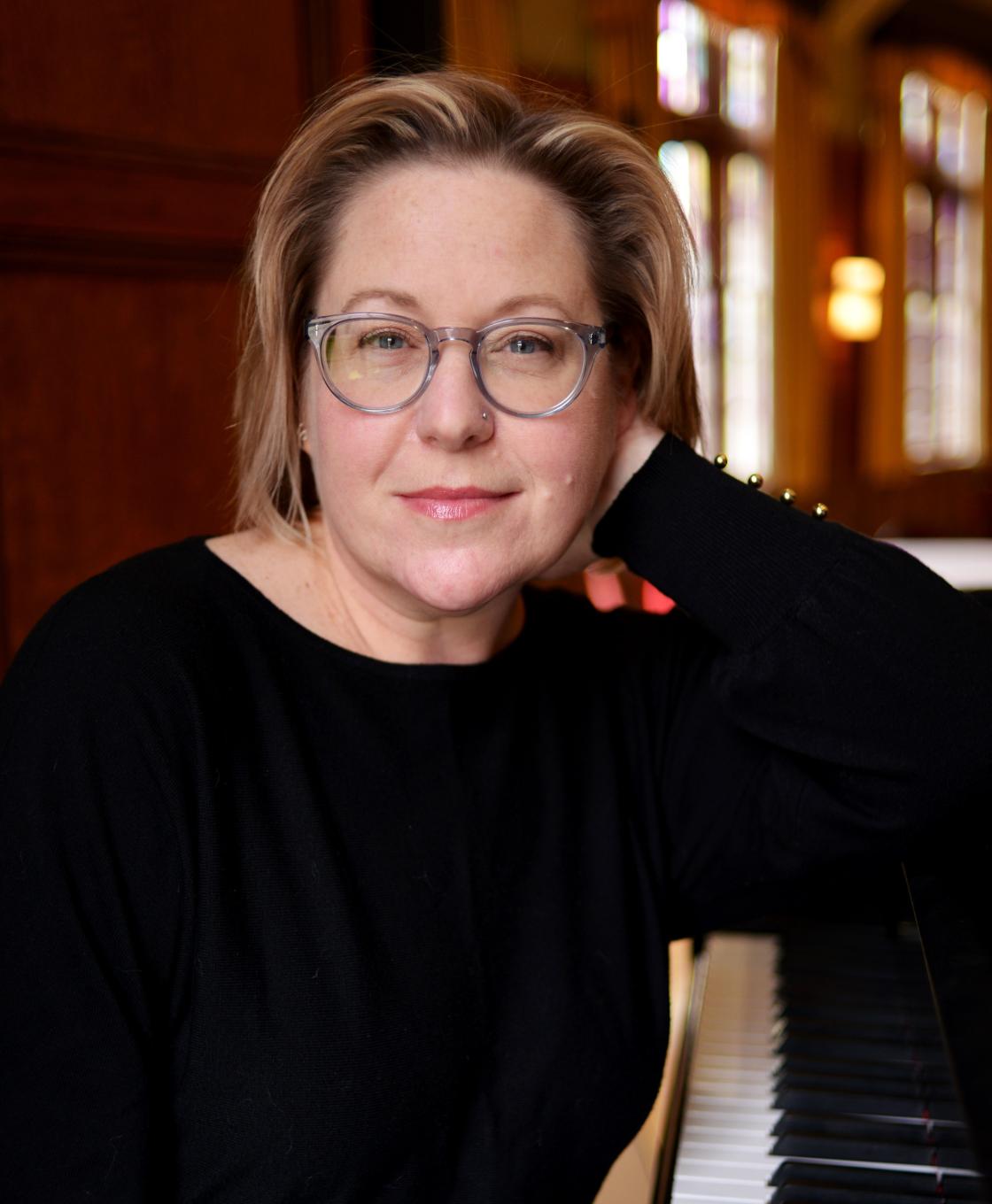
Kyoko Kashiwagi is an avid chamber musician and an experienced orchestral player. Born in Zurich, Switzerland, and raised in Tokyo, Japan, she studied violin at the Juilliard School with Dorothy DeLay, Joseph Fuchs, and Joel Smirnoff of the Juilliard String Quartet. As the first violinist and founding member of the Amernet String Quartet, she led the group to win the first prize at the Fifth Banff International String Quartet Competition (1995), Tokyo Music Competition (1995), and Fischoff Chamber Music Competition, among others. She has performed throughout the United States, Japan, Korea, France, Germany, and Switzerland, and at Aspen, Newport, Tanglewood, Ravinia, Norfolk, Lucerne, and the Lincoln Center’s Mostly Mozart music festivals. After leaving the quartet, Kashiwagi moved to Michigan where she teaches privately and performs as a member of the Muse Ensemble as well as on stage regularly as an extra musician for the Detroit Symphony Orchestra.
Violist Eva Stern is a founding member of the Muse Ensemble. She is a member of the Chautauqua Symphony Orchestra, and has served on music school faculties including those of Eastern Michigan University, Bowling Green State University, and Virginia Commonwealth University. She has been a member of the St. Louis Symphony and the Louisville Orchestra, and plays as a substitute musician with the Detroit Symphony Orchestra. Stern has performed with chamber ensembles including the Chautauqua String Quartet, the Michigan Chamber Players, Chamber Music Ann Arbor, and the American Romanian Festival. Stern is a Pilates Teacher and Franklin Method Educator; she specializes in working with musicians, and teaches musician-focused movement classes and workshops across the country and online. You can learn more about her at fortemovement.com.
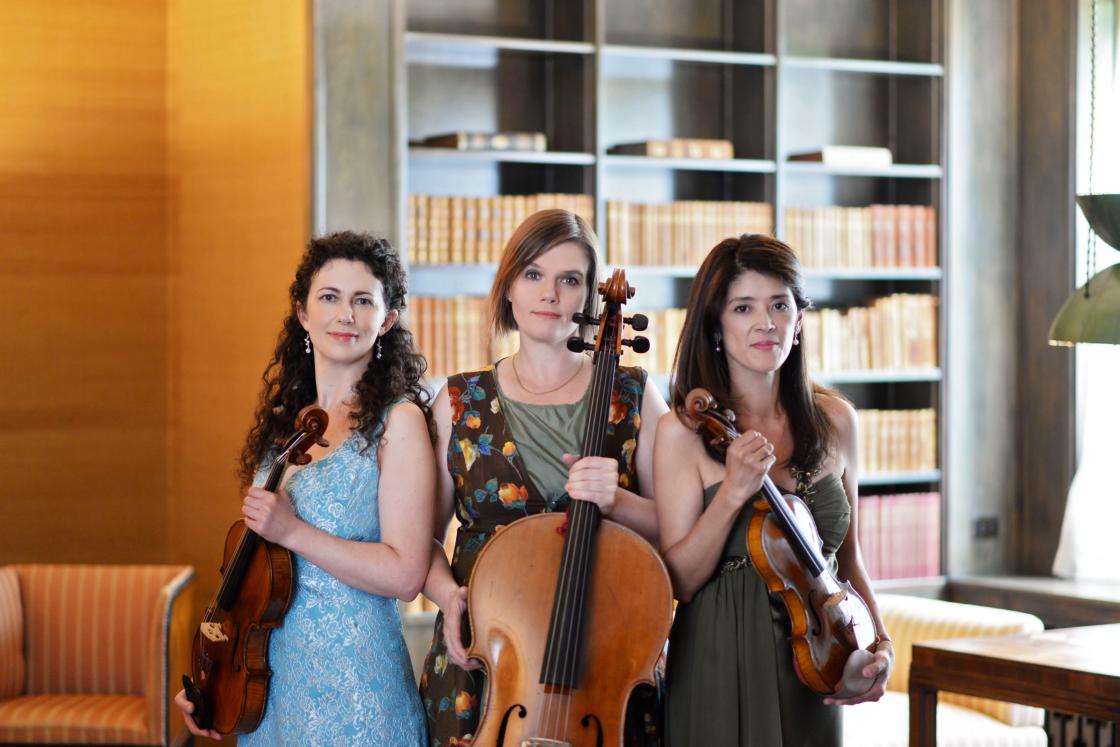
Naki Sung Kripfgans, DMA, a native of South Korea, has concertized regionally and internationally and has received numerous scholarships and awards in piano performance, organ performance, and organ improvisation. As a virtuoso improviser, she won the Robert Glasgow Award for Organ Improvisation Competition at the University of Michigan in 2012, and served as one of the judges for its 2019 competition. She was featured in an article series, “Women in Improvisation,” in the December 2020 issue of American Guild of Organists magazine. Naki is the Director of Music Ministries at Bethlehem United Church of Christ in Ann Arbor. At the University of Michigan, she is a resident collaborative pianist for the String Department at School of Music, Theatre, and Dance, and a lecturer in the music program at the Residential College.
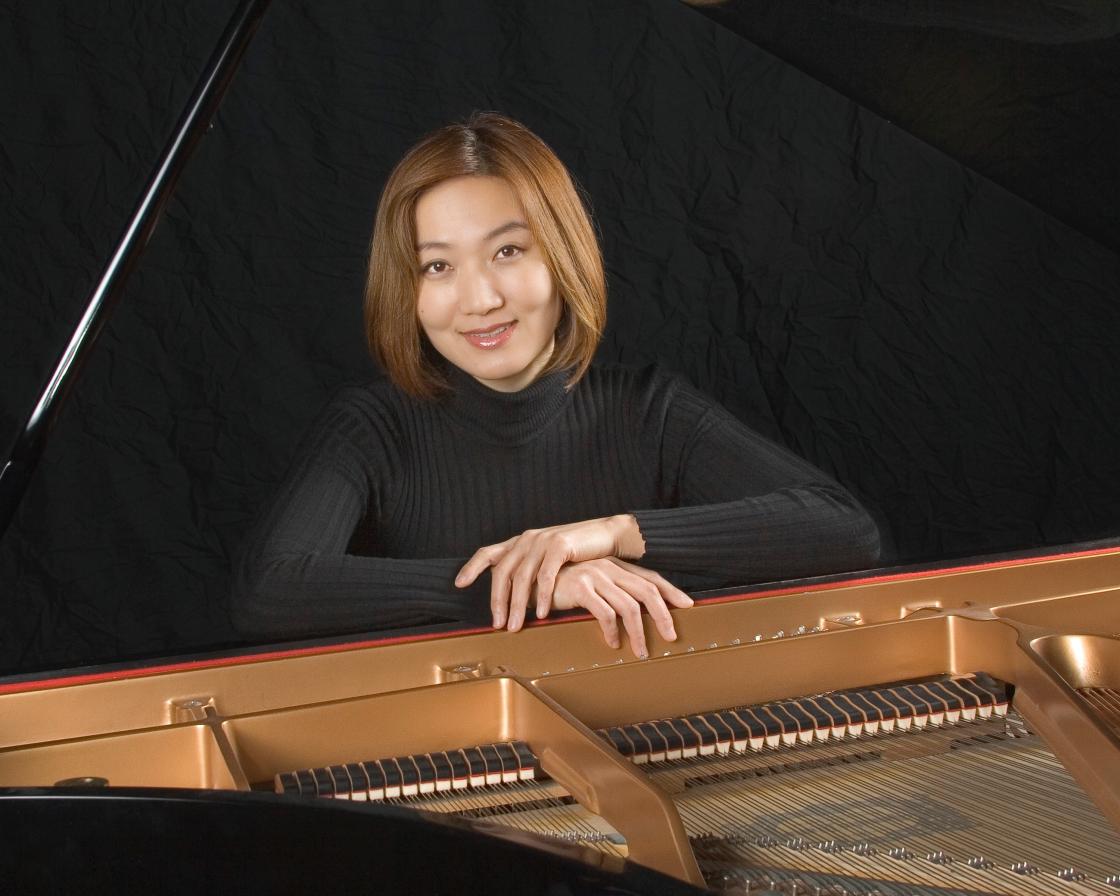
ADDITIONAL TICKET INFORMATION
Tickets for this concert are $75 per person and include a $25 tax-deductible donation to Cranbrook Center for Collections and Research. Seating is not reserved and is available on a first-to-arrive basis. Cranbrook House will open fifteen minutes before the concert, at 3:45pm. For additional information, please contact Emma Brick, Senior Administrative Assistant for the Center, at 248.645.3307.
REFUND POLICY
Tickets, including the $25 tax-deductible donation to the Center, are non-refundable. However, with at least a three-day advance notice, tickets may be transferred to another guest, or we will gladly convert the entire ticket fee to a tax-deductible donation.
PARKING
Cranbrook House is located at 380 Lone Pine Road, Bloomfield Hills, Michigan, 48304, across from Christ Church Cranbrook. Parking is available in the Cranbrook House parking lot, a five-minute walk from the house’s front door. Additional parking is available on the service drive that runs parallel to Lone Pine Road, south and west of the Cranbrook House parking lot.
CRANBROOK HOUSE ACCESSIBILITY
Three accessible parking spaces are located on the exit drive just south of the Cranbrook House Courtyard. There is a ramp to enter the main entrance of Cranbrook House. Registration, the concert, and intermission all take place on the first floor of Cranbrook House, where an accessible restroom also is located. For questions about accessibility, please contact the Cranbrook Center at 248.645.3307 or Center@cranbrook.edu.
PHOTO CREDITS
Banner Image: Frozen Music/Liquid Architecture Concert by the Muse Ensemble in the Cranbrook House Library, June 9, 2019; Courtesy of Cranbrook Center for Collections and Research.
Cranbrook House Library, 2021; Photography by Tryst Mallette, Courtesy of Cranbrook Center for Collections and Research.
Isang Yun, Composer.
Daniel Bernard Roumain (DBR), Composer; Photograhpy by Bethanie Hines.
Jennifer Goltz-Taylor, Vocalist.
The Muse Ensemble with (from left to right) Eva Stern (Viola), Katri Ervamaa (Cello), and Kyoko Kashiwagi (Violin) in the Saarinen House Living Room; Photography by Jennifer Ilene.
Naki Sung Kripfgans, Pianist.


